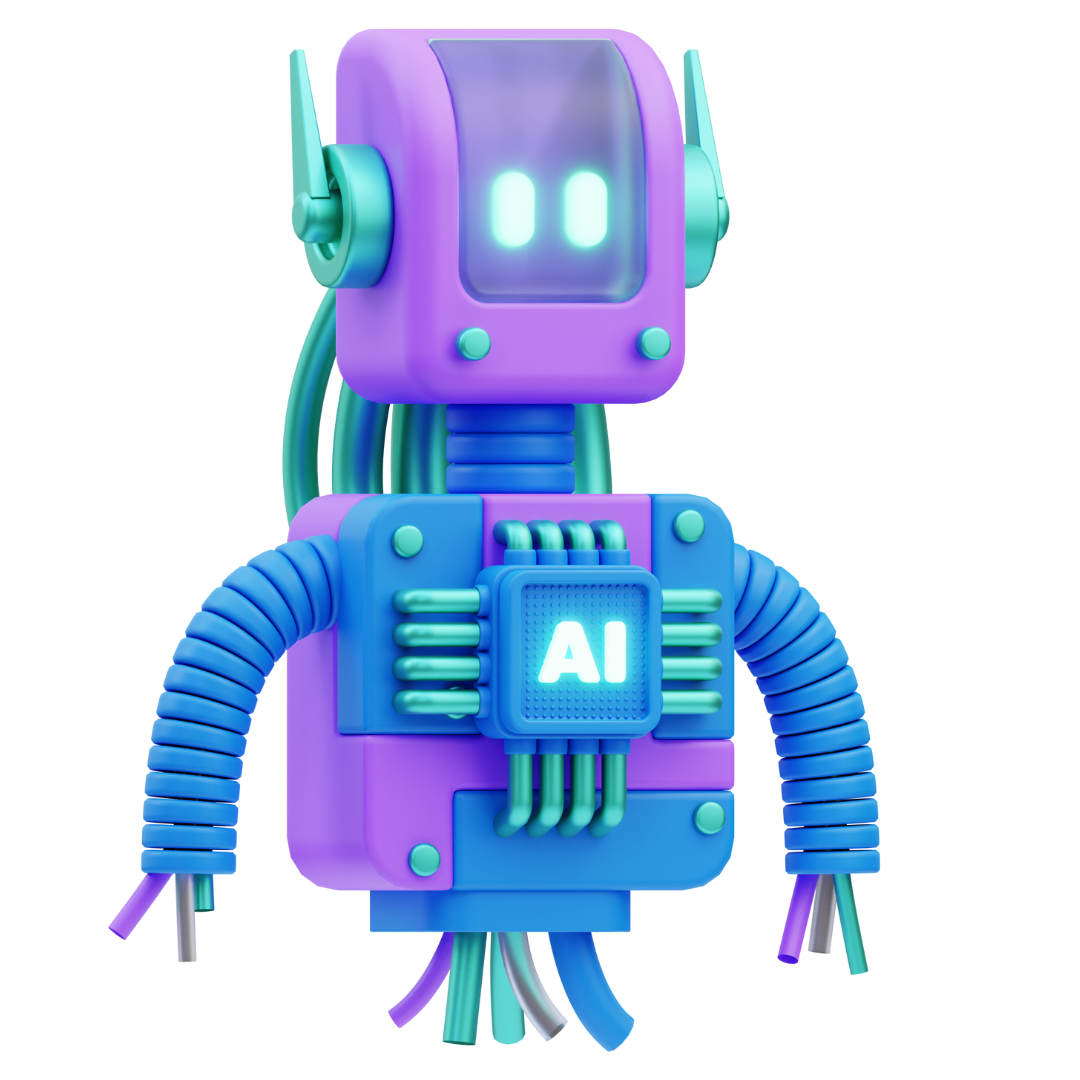Reinforcement Learning Assignment Help | Online Tutors
Welcome to our comprehensive Reinforcement Learning service, where we immerse ourselves in the thrilling realm of Artificial intelligence, machine learning, and Python programming. Reinforcement Learning stands at the forefront of cutting-edge techniques, allowing machines to learn from their interactions with the environment to achieve specific objectives. If you're enthusiastic about exploring this captivating field and mastering the art of crafting intelligent agents, you've landed in the right spot.
Our Reinforcement Learning coursework Help offers a deep dive into the foundational principles, coupled with practical implementation using Python. We offer assignment help, homework help, online tutoring & project help services related to Reinforcement Learning. You'll acquire hands-on experience in creating algorithms that learn through trial and error, enabling them to make informed decisions in intricate scenarios.
Leverage the versatility and user-friendliness of Python to seamlessly implement and experiment with Reinforcement Learning algorithms. Explore the latest advancements in Reinforcement Learning, including Deep Q Networks (DQN), Policy Gradient Methods, and Proximal Policy Optimization (PPO). Unlock the boundless potential of Reinforcement Learning through Python programming and embark on a journey to craft intelligent, adaptive systems. We provide a deeper understanding of Reinforcement Learning concepts by providing 1-to-1 personalized tutoring sessions & assignment help services.
What is Reinforcement Learning?
Reinforcement Learning is an exhilarating subfield within artificial intelligence, concentrated on the training of agents to make decisions by engaging in trial-and-error interactions with their environment. Unlike other machine learning methodologies, where data comes pre-labeled with correct answers, Reinforcement Learning operates on a reward-based system. Here, agents learn by receiving either positive or negative feedback in response to their actions. The ultimate aim is to maximize cumulative rewards over time, allowing the agent to discern and adopt the optimal strategy for achieving specific objectives.
The Reinforcement Learning process can be summarized as follows:
- Environment: The environment serves as the backdrop in which the agent operates. It's within this context that the agent takes actions and subsequently receives feedback based on the consequences of those actions.
- State: The state is a representation of the environment at a specific time. It includes all relevant information for the agent to make decisions.
- Action: The agent takes actions based on its current state. These actions can have immediate consequences and impact future states.
- Reward: After taking an action, the agent receives a reward from the environment, indicating the desirability of its action.
- Policy: The policy is the strategy that the agent uses to map states to actions. The agent aims to learn an optimal policy to maximize rewards.
Types of Reinforcement Learning
Reinforcement Learning can be classified into several types based on the learning approach and the availability of the environment's model. Each type serves different purposes and is suited for specific problem domains. In the realm of Python programming, understanding these types is essential for choosing the right approach for a given task. Here are the main types of Reinforcement Learning:
- Model-Based Reinforcement Learning: In this approach, the agent utilizes an explicit model of the environment. Python developers can construct models that represent the dynamics of the environment and use them to simulate potential actions and predict rewards. Model-Based Reinforcement Learning is advantageous when the environment is complex and interacting with it is expensive. Python's libraries like TensorFlow and PyTorch can assist in building and training these models effectively.
- Model-Free Reinforcement Learning: In contrast to model-based methods, model-free approaches do not rely on an explicit model of the environment. Instead, the agent learns directly from interactions with the environment. Python's extensive libraries, such as OpenAI Gym, provide pre-built environments and interfaces for seamless implementation of model-free algorithms like Q-Learning and Deep Q-Networks (DQNs).
- Value-Based Reinforcement Learning: Value-based methods aim to approximate the value function, which predicts the expected cumulative reward from a given state. Python's numerical computation libraries like NumPy enable efficient computation of value functions and value-based algorithms like Temporal Difference (TD) Learning and SARSA.
- Policy-Based Reinforcement Learning: Policy-based methods directly learn the policy, i.e., the strategy mapping states to actions. These approaches often use gradient descent algorithms to optimize the policy. Python's machine learning libraries like TensorFlow and PyTorch offer robust tools for policy-based algorithms like Policy Gradient and Proximal Policy Optimization (PPO).
- Actor-Critic Reinforcement Learning: Actor-critic methods blend components from both value-based and policy-based approaches. Python developers can leverage this hybrid approach to gain stability and convergence benefits. Libraries like TensorFlow and PyTorch support the implementation of Actor-Critic networks for efficient learning.
Applications of Reinforcement Learning
Reinforcement Learning (RL) has proven to be quite useful in various practical scenarios, and Python programming offers a strong platform for putting RL algorithms into action. Here are a few noteworthy ways in which Reinforcement Learning is applied in Python:
- Robotics and Autonomous Systems: RL empowers robots and autonomous vehicles to learn optimal control policies for tasks like navigation, grasping objects, and assembly. Python libraries like ROS (Robot Operating System) combined with RL frameworks facilitate practical implementation.
- Recommendation Systems: RL-based recommendation systems personalize content and product recommendations, improving user experience. Python's data processing libraries like Pandas and NumPy support data preprocessing for RL-based recommendation models.
- Traffic Management: RL-based traffic control systems optimize traffic flow and reduce congestion. Python's visualization libraries like Matplotlib aid in visualizing traffic simulations and outcomes.
- Energy Management: RL optimizes energy consumption in smart grids and HVAC systems. Python's numerical libraries facilitate RL-based energy management algorithms.
- Industrial Automation: RL improves efficiency and reduces downtime in industrial processes. Python's integration with industrial frameworks like OPC-UA enhances RL in automation.
- Virtual Assistants: Reinforcement Learning powers intelligent virtual assistants that learn from user interactions to provide more personalized and relevant responses
Reinforcement Learning Homework Help with Online Tutoring Sessions
Reinforcement Learning presents unique challenges that set it apart from other machine learning paradigms. While powerful and promising, it demands specific considerations due to its interactive nature and reward-driven learning. Let's explore the key reasons why Reinforcement Learning is challenging in the context of Python programming:
- Exploration vs. Exploitation Dilemma: Balancing exploration (trying new actions) with exploitation (choosing actions that have yielded high rewards) is crucial. Agents must continuously explore new possibilities while also exploiting what they have learned to maximize rewards, making it challenging to strike the right balance.
- Delayed Rewards: Reinforcement Learning often involves delayed rewards, where the consequences of an action may not be evident immediately. This makes it harder for agents to associate actions with rewards, leading to longer training times.
- High-dimensional State Spaces: Many real-world problems have complex state spaces, making it difficult to capture all possible scenarios effectively. Python developers must leverage dimensionality reduction techniques and suitable data representations to handle such environments efficiently.
- Sample Inefficiency: Reinforcement Learning typically requires numerous interactions with the environment to learn a good policy. This sample inefficiency can be time-consuming and computationally expensive, especially when dealing with complex tasks.
- Stability and Convergence: Ensuring that Reinforcement Learning algorithms converge to an optimal policy and remain stable throughout the learning process is a challenge. Fine-tuning hyperparameters and designing appropriate architectures in Python are essential for stable training.
- Model Selection: In model-based Reinforcement Learning, selecting the right model architecture is crucial. Python developers must choose models that capture the dynamics of the environment accurately, striking a balance between complexity and simplicity.
Popular Concepts Used in Solving Reinforcement Learning Homework
Our Reinforcement Learning Service offers comprehensive coverage of key topics in the field, empowering Python programmers and researchers to harness the potential of RL for solving complex problems. Some of the primary topics covered in our service include:
- Introduction to Reinforcement Learning: A foundational understanding of RL concepts, algorithms, and terminologies, enabling learners to embark on their RL journey with Python.
- Markov Decision Processes (MDPs): In-depth exploration of MDPs as a formal framework for modeling RL problems, with practical implementations using Python libraries.
- Dynamic Programming: Understanding Dynamic Programming algorithms like Policy Iteration and Value Iteration, and applying them to solve RL challenges in Python.
- Monte Carlo Methods: Learning how to estimate value functions using Monte Carlo sampling and applying them in Python for RL applications.
- Temporal Difference Learning: Implementing TD algorithms like SARSA and Q-Learning in Python for efficient RL updates.
- Deep Reinforcement Learning: Exploring the fusion of RL with deep neural networks, including DQNs, Deep Policy Gradient methods, and A3C, with hands-on Python implementations.
- Exploration vs. Exploitation: Striking the right balance between exploration and exploitation in RL, employing Python techniques to improve learning efficiency.
- RL in Robotics: Applying Reinforcement Learning concepts in Python to control robotic systems and autonomous agents for tasks like navigation and grasping.
- RL in Games: Leveraging Python libraries to build Reinforcement Learning agents that excel in complex game environments.
Why choose our Reinforcement Learning Assignment Help Service?
Our Reinforcement Learning Service stands out as a premier choice for Python programmers and researchers seeking a comprehensive and hands-on approach to mastering RL. Here are compelling reasons why you should choose our service:
- Extensive Coverage of RL Concepts: Our Reinforcement Learning Assignment Help service offers an in-depth exploration of essential RL concepts, algorithms, and applications, all delivered in a Python-centric manner. We cover everything from fundamental concepts to advanced techniques, ensuring a holistic understanding of Reinforcement Learning.
- Practical Hands-on Experience: Learning RL is most effective through hands-on experience. Our service provides numerous Python-based coding examples, exercises, and real-world projects that immerse you in Reinforcement Learning problem-solving scenarios, enhancing your practical skills.
- Expert Guidance: Our team comprises seasoned Reinforcement Learning experts with a deep understanding of Python programming. You'll receive expert guidance, personalized feedback, and valuable insights, empowering you to grasp challenging RL topics with confidence.
- Cutting-edge Tools and Libraries: Our service leverages state-of-the-art Python libraries like TensorFlow, PyTorch, and OpenAI Gym, equipping you to work with cutting-edge tools used in the industry.
- Real-world Applications: We focus on practical Reinforcement Learning applications across various domains, enabling you to understand how RL can be deployed to solve real-world challenges effectively.
- Flexibility and Self-paced Learning: Our service caters to learners of all levels, allowing you to progress at your own pace. Whether you are a beginner or an experienced Python programmer, our content is adaptable to your needs.






 Certified Python Experts
Certified Python Experts
 4.7/5.0
4.7/5.0 4.3/5.0
4.3/5.0 4.5/5.0
4.5/5.0





